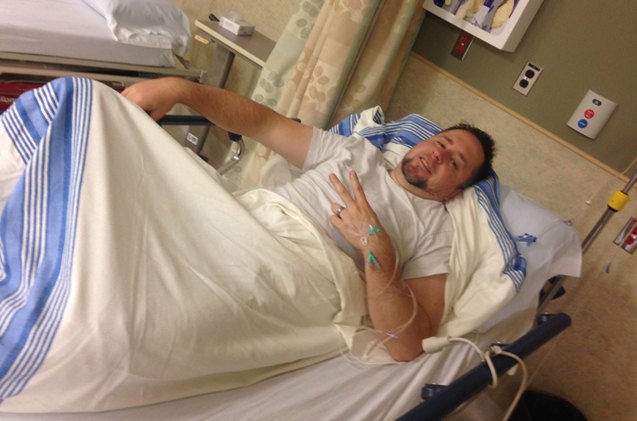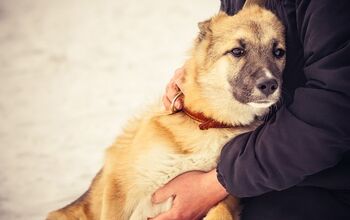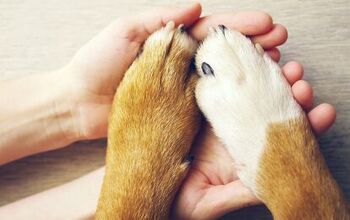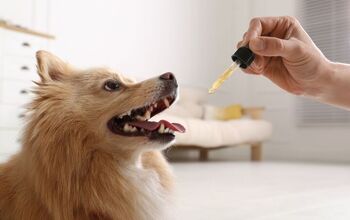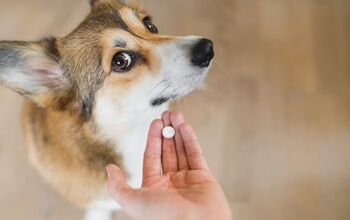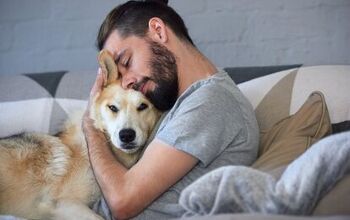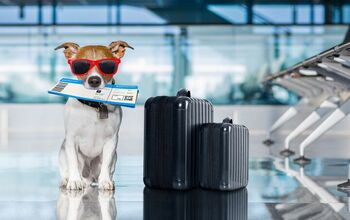Emergency 911 Tips For The Prepared Pet Parent

Recently, I took an unexpected trip to the emergency room. I ended up in the hospital for a bit, but not to worry – I’m happy to report that I’m doing much better. It was one of the scariest times in my life, and I am thankful for the help and support that I had in taking care of myself and my animals in my absence.
If you’ve read any of my articles here on PetGuide.com, you know that I am the proud parent of three large black dogs. They are well behaved, but they are big, loyal and a pack – I’m aware that they can appear intimidating to people. When I had my accident, vulnerable and unable to move, the dogs were stressed out… to say the least. My husband called 911, and suddenly the house filled with strangers. There were sirens, bright lights, and doors opening and closing as people came and went.
Related: Do You Have An Emergency Plan For Your Dog?
I was taken to the hospital and am well on my way down the road to recovery, but when I couldn’t move, it meant there was one-less pair of hands available in our busy pet-dominated household. While I was bed ridden, we enlisted the help of friends to do dog chores, and I am grateful for all support, well wishes and help I received during the time.
There’s something to be said about learning lessons during any of life challenges – good and bad. And let me tell you, I came away with some valuable lessons about being a prepared pet parent after this challenge! Let me pass on some tips I learned from my unexpected emergency situation.
Related: What To Do If Your Dog Gets Lost
- Train your dog. Period. A well-trained, well-behaved dog is not only more confident and easier to live with, but he’s also able to handle change and is more likely of taking direction from a friend or neighbor. This is vital, especially if you end up in an extended stay in the hospital and your dog needs to stay with friends or family until you’re back on your feet.
- Emergency contacts. How many people can get in your house if something were to happen to you? Could you easily get a hold of them in the event of an emergency? A neighbor, friend or family member with a key and who lives close by is ideal. If they are also a pet parent, you might swap keys and go over routines with them, just in case. Give your friend’s name and contact info to your neighbors, as well as to your home alarm company. It’s also not a bad idea to carry this info in your wallet, just in case you aren’t able to speak for yourself. Because of my accident, we switched our door locks to numeric codes. That way, our designated friend doesn’t need a key to get inside, just the code.
A pet-safe place. Our dogs have a set routine. When the doorbell rings, they go off to their room and we reward them with food and treats. We do this all the time, without fail. Whenever we are out of the house, they go off to their room as well. It’s outfitted with cozy kennels, and blankets – even if it’s not the nicest room in the house, it sure is dog friendly! When the paramedics arrived at my house, the dogs trotted off to their room. No matter the size of your living space, be sure to have somewhere you can put your pet away and keep them safe in the event of an emergency. Police, fire or paramedics answer the 911 call to take care of you in an emergency, and your pet might be a distraction… or worse.
What tips do you have in the event of a human emergency? Please share your experiences in the comment section below, so we can all learn and be prepared pet parents.

Kevin Roberts lives for adventure. Together with his pack of rescue dogs and his husband, he spends as much time outdoors as possible. Kevin lives by the motto: "Get outside and play with your dogs!
More by Kevin Roberts



